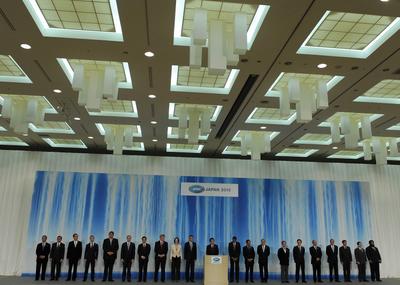This has sparked a debate within academic and policy circles about whether the international trade and investment agreements that facilitate investor-state dispute settlement (ISDS) infringe on a government’s ‘right to regulate’.
Until recently, the debate has been largely confined within countries that are party to the North American Free Trade Agreement, which have longstanding experience with ISDS. However, it is evident that ISDS is now truly a global phenomenon: governments in more than 80 countries have been brought before investment arbitration panels. In light of the ongoing negotiations for a Trans-Pacific Partnership Agreement (TPP), the concerns surrounding ISDS are particularly relevant for governments in the Asia-Pacific region.
The TPP builds on the Trans-Pacific Strategic Economic Partnership Agreement and has been described as a building block for a free trade area covering the entire region. Also ongoing are negotiations for a Pacific Agreement on Closer Economic Relations (PACER Plus), and several other bilateral treaties. All of these agreements could potentially include provisions on ISDS.
When considering such provisions, governments in the region should carefully read a report on Bilateral and Regional Trade Agreements released by the Australian Productivity Commission (PC) in November of last year. The findings are unequivocal: the PC sees no economic justification for including provisions on ISDS in trade agreements, pointing to a lack of evidence that such provisions influence flows of foreign direct investment. The PC additionally argues that ‘Experience in other countries demonstrates that there are considerable policy and financial risks arising from ISDS provisions.’
The report discusses several ways of ameliorating such risks. Developed countries such as Canada and the United States have tightened the language of treaties in an attempt to constrain the scope of arbitrator authority over disputes. However, the PC rejects this approach, arguing that it is difficult to precisely define the terms commonly found in investment agreements and suggesting that no matter how well ISDS provisions are designed, risks will remain.
Considering these risks and the absence of any evidence that ISDS brings substantial benefits, the PC favours the outright rejection of ISDS provisions in agreements signed by the Australian government. Over 45 academics (including myself) have also advocated that governments avoid ISDS in a Public Statement on the International Investment Regime.
Another option mentioned in the report may prove attractive to Australian negotiators. This is what I call the ‘double standard’ approach in which the application of ISDS is limited to a subset of the member countries in an agreement. Such a strategy was taken in the ASEAN-Australia-New Zealand Free Trade Agreement, which provides for ISDS except between Australia and New Zealand (i.e. Australian investors can take any ASEAN government to arbitration, but not the New Zealand government and similarly investors from New Zealand cannot sue Australia).
Adopting a double-standard may appear strategic for developed countries, but it lacks foresight. It is well recognised that global trade and investment patterns are rapidly changing and that some countries which were historically considered capital importers are now major sources of overseas investment. In the long run, Australia may not be as immune to claims from investors from developing countries as is currently assumed; in fact, last year a Sydney-based lawyer suggested that the Chinese company Chinalco could have theoretically taken the government to arbitration over Kevin Rudd’s proposed super profits tax on the mining industry.
Neither is it uncommon for investors to establish ‘mailbox’ subsidiaries in countries in order to gain access to arbitration. This has been the strategy of the Canadian company Pacific Rim Mining Corp, which moved a Cayman Islands based subsidiary to Nevada to facilitate its arbitration claim against El Salvador under the terms of the Central American Free Trade Agreement.
A consistent approach rejecting investor-state dispute settlement would better protect Australian public policy, and would also complement the government’s efforts to support sustainable development in the Asia-Pacific region. The regulation of foreign investment is crucial in ensuring that projects contribute to sustainable development but it is much more difficult for developing countries to preserve their right to regulate under trade and investment agreements than it is for developed countries.
The significant procedural costs associated with arbitration and limited access to specialised legal expertise in many countries are critical issues. Even assuming that governments have the resources to defend their actions in arbitration, if they lose they may face considerable difficulty in paying damages awarded to the investor, which can cover ‘lost future profits’ and amount to hundreds of millions of dollars. It is, therefore, commendable that the PC report concludes its discussion of ISDS along these lines, suggesting that it might be preferable for developed nations like Australia to focus on assisting developing countries through legal capacity building initiatives, rather than on aiding corporations in their efforts to evade their obligations under domestic legal systems.
Kyla Tienhaara is a Postdoctoral Fellow at the Regulatory Institutions Network, at the Australian National University.

